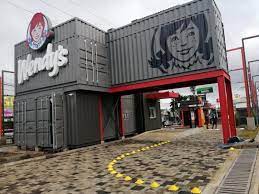Imagine this: you stroll down a quaint, bustling street, enticed by the aroma of delectable dishes wafting from a nearby restaurant. As you approach, your eyes catch the elegant display of fountain pens gleaming in the sunlight from the adjacent store. It’s an unexpected but delightful combination—a restaurant nestled next to a fountain pen store. While it may seem unconventional at first glance, this pairing offers a myriad of benefits that enhance the dining and shopping experience in unexpected ways. In this article, we’ll explore the symbiotic relationship between these two establishments and the unique advantages they bring to both patrons and business owners.
Atmosphere Enhancement
The ambiance of a restaurant plays a crucial role in shaping the dining experience. By situating next to a fountain pen store, restaurants can elevate their ambiance and appeal to a broader audience. The serene, sophisticated atmosphere of the pen store seeps into the restaurant, creating an environment conducive to relaxation and creativity. Customers dining amidst rows of exquisite pens experience a heightened sense of refinement and elegance, making their meal feel like a luxurious indulgence.
Cross-Promotion Opportunities
Collaboration between the restaurant and the fountain pen store opens up exciting cross-promotion opportunities. Special events such as pen-themed dinner nights or exclusive dining discounts for pen purchasers can draw patrons from both establishments, fostering a sense of community and loyalty. Additionally, promotional materials and displays in each venue can inform customers about the offerings of the other, leading to increased foot traffic and sales for both businesses.
Networking Hub
For professionals and enthusiasts alike, the combination of a restaurant and fountain pen store creates a unique networking hub. Business meetings, writers’ gatherings, and creative workshops find a natural home in this dynamic space. Patrons can mingle over gourmet cuisine while exploring the latest pen collections, fostering connections and sparking inspiration. The restaurant becomes more than just a place to dine—it becomes a vibrant hub where ideas flow as freely as ink from a well-crafted fountain pen.
Lifestyle Destination
By positioning itself next to a fountain pen store, a restaurant becomes part of a curated lifestyle destination. Customers seeking refined dining experiences are drawn to the allure of premium pens and accessories, elevating their visit from a mere meal to a memorable outing. Whether indulging in culinary delights or perusing the latest pen innovations, patrons immerse themselves in a world of sophistication and refinement, enriching their lives beyond the ordinary.
Enhanced Customer Experience
The proximity of a restaurant to a fountain pen store enhances the overall customer experience in subtle yet significant ways. Patrons can enjoy the convenience of browsing for pens before or after their meal, turning a routine errand into a delightful excursion. Likewise, diners may receive complimentary vouchers or discounts for visiting the pen store, adding value to their dining experience. Such thoughtful gestures leave a lasting impression and cultivate customer loyalty, ensuring repeat business for both establishments.
Cultural Enrichment
Beyond the realm of commerce, the presence of a restaurant and fountain pen store side by side enriches the cultural fabric of the community. Artisanal craftsmanship, culinary creativity, and intellectual pursuits converge in this vibrant space, fostering a sense of appreciation for the finer things in life. Through collaborative events, workshops, and exhibitions, these establishments become pillars of cultural enrichment, inspiring creativity and fostering a deeper connection among residents and visitors alike.
Conclusion
In the bustling tapestry of urban life, unexpected pairings often yield the most delightful experiences. The combination of a restaurant and a fountain pen store exemplifies this synergy, offering a harmonious blend of culinary indulgence and artisanal appreciation. From enhancing ambiance to fostering community engagement, the benefits of this unique pairing are manifold, enriching the lives of patrons and business owners alike. So, the next time you’re seeking a memorable dining experience or a fine writing instrument, look no further than the enchanting duo of a restaurant next to a fountain pen store—the perfect pairing for discerning connoisseurs and curious explorers alike.



